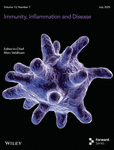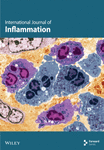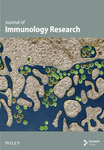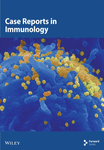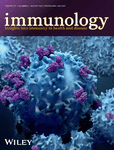Journal list menu
Export Citations
Download PDFs
Research Article
Open Access
oa
Punicalagin Induces Nrf2/HO-1 Expression via Upregulation of PI3K/AKT Pathway and Inhibits LPS-Induced Oxidative Stress in RAW264.7 Macrophages
- First Published: 19 April 2015
Research Article
Open Access
oa
Percentages of CD4+CD161+ and CD4−CD8−CD161+ T Cells in the Synovial Fluid Are Correlated with Disease Activity in Rheumatoid Arthritis
- First Published: 16 April 2015
Research Article
Open Access
oa
The Combination of N-Acetyl Cysteine, Alpha-Lipoic Acid, and Bromelain Shows High Anti-Inflammatory Properties in Novel In Vivo and In Vitro Models of Endometriosis
- First Published: 16 April 2015
Research Article
Open Access
oa
The Evaluation of Plasma and Leukocytic IL-37 Expression in Early Inflammation in Patients with Acute ST-Segment Elevation Myocardial Infarction after PCI
- First Published: 16 April 2015
Research Article
Open Access
oa
Ginkgo biloba Extract Improves Insulin Signaling and Attenuates Inflammation in Retroperitoneal Adipose Tissue Depot of Obese Rats
- First Published: 16 April 2015
Review Article
Open Access
oa
Anti-Inflammatory and Immunoregulatory Functions of Artemisinin and Its Derivatives
- First Published: 16 April 2015
Research Article
Open Access
oa
Astragaloside IV Inhibits NF-κB Activation and Inflammatory Gene Expression in LPS-Treated Mice
- First Published: 16 April 2015
Research Article
Open Access
oa
Inhibitory Effect of Methyleugenol on IgE-Mediated Allergic Inflammation in RBL-2H3 Cells
- First Published: 16 April 2015
Research Article
Open Access
oa
Construction, Expression, and Characterization of a Recombinant Immunotoxin Targeting EpCAM
- First Published: 16 April 2015




